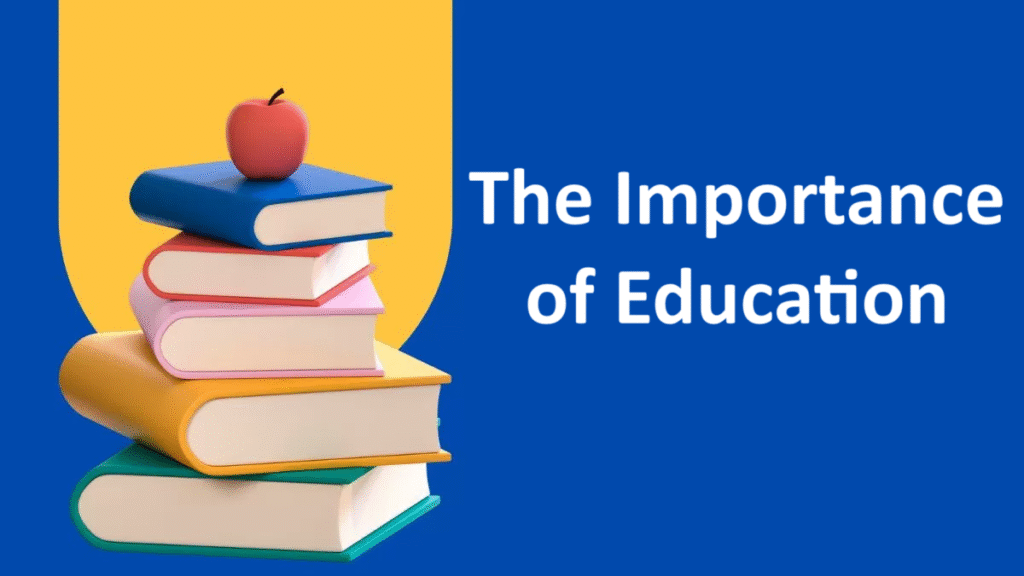Why Education Matters
Education is more than just attending school or passing exams. It shapes how people think, act, and live. With knowledge, individuals gain the power to make informed decisions, solve problems, and build meaningful lives.
Building Confidence and Skills
An educated person can communicate better, think critically, and approach challenges with confidence. Skills such as problem-solving, teamwork, and leadership are developed through learning and are useful in every stage of life.
Promoting Equality
Education gives equal opportunities to people regardless of their background. It breaks the cycle of poverty by helping individuals secure better jobs and improve their standard of living. This makes education a tool for fairness and social justice.
Education and Economic Growth
Countries with strong education systems have stable economies. A knowledgeable workforce attracts investment, drives innovation, and increases productivity.
Better Job Opportunities
When people are educated, they are more likely to get good jobs and stable incomes. This not only benefits individuals but also supports families and communities.
Nation Building
A well-educated population leads to stronger industries, entrepreneurship, and higher living standards. Education lays the foundation for long-term national growth.
Education’s Role in Society
Education connects people through shared knowledge, values, and respect for diversity. It also plays a vital role in strengthening democratic systems.
- Educated citizens understand their rights and responsibilities.
- They can hold leaders accountable and contribute to social development.
- Exposure to different cultures and perspectives builds tolerance and cooperation.
The Future of Education
Modern technology is transforming how people learn. Digital classrooms, online platforms, and AI tools have made education more accessible than ever before.
Opportunities Through Technology
Students can now access global resources and learn at their own pace. This creates opportunities for millions who previously lacked access to quality education.
Challenges Ahead
At the same time, issues like the digital divide and lack of equal internet access must be addressed to ensure fairness. Governments and institutions need to focus on making technology-driven education inclusive.
Conclusion
The importance of education cannot be overstated. It empowers individuals, builds fairer societies, strengthens economies, and prepares nations for the future. By investing in education, both at personal and national levels, we are investing in a brighter tomorrow.

